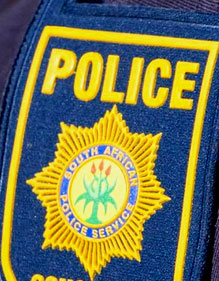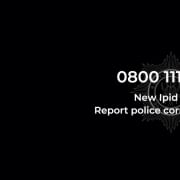|
Getting your Trinity Audio player ready...
|
 By Daneel Knoetze
By Daneel Knoetze
First published on GroundUp
Pressure is mounting on the police to sort out problems with a R400-million firearms control system, 10 years after the contract to develop it was signed with Pretoria-based company Waymark Infotech.
In its successful bid for the contract in 2003, Waymark proposed an IT system which would enable the police to track firearms and identify the ownership, identity and history of a firearm “anywhere anytime”. In addition to this “technical solution”, Waymark proposed skills development to ensure that police personnel are trained to use the system. Waymark’s tender estimated the system would cost R42-million.
The Firearms Control Act of 2000 requires that the national police commissioner establish a “central firearms register”. The deliverables expected from Waymark – a database and document processing system to manage the firearms register– are noted in the contract signed with the police and correspond closely to the legislated requirements for the central firearms register.
According to the auditor-general's performance audit report for 2012/13, the contract, signed in September 2004, set the price for the system at around R93-million. This is more than double the estimate in the tender. The contract also set the deadline for the system handover at 5 July 2006.
But between March 2005 and February 2007, addenda to the contract show that the deadline was pushed back multiple times. The cost of the system also escalated to about R412-million, of which R343-million has been paid according to the auditor-general.
In 2012, the police suspended dealings with Waymark and launched an internal investigation into the contract. Yet it remains unclear whether this investigation was ever completed. The reasons for the ballooning costs and delays associated with the contract also remain a mystery.
Getting to the bottom of the matter
Last month, more than a year after Cape Town-based NGO Ndifuna Ukwazi lodged a Promotion of Access to Information Act (Paia) application, the police handed over the contract documents for the development of the firearms control system. But details of the additional costs have been blanked out and some pages have been removed.
The auditor-general’s report pointed to the contract’s escalating cost and missed deadline and “provided a solid foundation for holding civil servants and private corporations accountable,” said Ndifuna Ukwazi founder Zackie Achmat.
“Unfortunately, the report did not name the officials involved or the company that benefitted from the police’s tender for a firearm control system,” Achmat said. “When we were denied access to this information, information that should be in the public sphere, Ndifuna Ukwazi lodged a Paia application.”
He said the omission of details of the costs involved, even after the Paia application was successful, was “unethical and unconstitutional”.
Waymark, whose website describes it as a black economic empowerment company, specialises in developing IT systems for election and voters’ roll management.
In a number of recent elections elsewhere in Africa, Waymark’s involvement has been mired in accusations of poll rigging and corruption. In 2005, Waymark’s contract with the Zanzibar Electoral Commission to revise the voters roll was scrapped after the island’s governor, Ali Juma Shamuhuna, accused the company of having bribed officials to get the contract. Last year, Guinean opposition parties cried foul over Waymark receiving a contract to handle the country’s voters roll.
Asked for an update on the internal investigation, for an explanation on the delays and ballooning costs and whether any part of the system has been handed over to the police, Waymark’s Joel Mpshe declined to comment, saying that the company was in “legal discussions” with the police about the contract.
“We are thus not at liberty to discuss the matter as it may jeopardise those discussions and any disclosure will have future legal implications for both parties,” he said.
Police spokesman Lieutenant General Solomon Makgale did not respond to GroundUp’s queries.
Registry problems
Problems with the police’s central firearms registry have been in the spotlight since the arrests of three police officers, who worked at the registry, in June. They are accused of using the registry’s computer system to issue gun licences corruptly. Ralph Stanfield, the nephew of late Cape Flats drug lord Colin Stanfield, and two other people based in Cape Town were also arrested for alleged involvement in the licensing syndicate. The case against these six will resume next year in the Cape Town Magistrates’ Court.
In the wake of the arrests, the police were called before Parliament’s police portfolio committee to account for the shortcomings at the central firearms registry. Their slideshow presentation identified challenges such as shortages in staff, skills and IT equipment. It also confirmed that electronic filing and databases were not being used, resulting in large volumes of paperwork being generated. This “inefficiency” in record keeping of applications for firearm licences is noted by the auditor-general in the police’s annual report for 2013/14.
In the report, the police claim that 96% of more than 250 000 firearm related applications were finalised. Yet, the auditor-general notes that he could not confirm the reported number of licences processed because 54% of the application forms were not available for audit.
A September visit by the portfolio committee to the central firearms registry confirmed that it was in disarray. The committee identified “poor IT systems”, outdated databases and was “appalled” by the paperwork stacked in the central firearms registry’s corridors. Police top management was told to “speed up its plans for a consolidated information technology system and a clean firearms database”.
Committee member Pieter Groenewald said that he would raise the issue of the stalled Waymark contract with National Police Commissioner Riah Phiyega at a meeting between the police and the committee next week.
“The registry is in a shambles and the correlation between this and the non-delivery of a system that has already cost hundreds of millions of rand needs to be discussed as a matter of urgency,” he said.
“The dysfunctionality of the system lends itself to corruption. What’s especially concerning is that this type of corruption can have potentially deadly consequences.”
Gun Free South Africa’s Adele Kirsten, who has monitored problems at the firearms registry for a number of years, said, “The police have been adept at identifying why the system is not working and where the challenges lie. But, their presentation to the committee [in August] was lacking in concrete recommendations for fixing the problems with the registry. The question that needs to be asked is: what is going to be done, and when?”
Download the documents obtained via Ndifuna Ukwazi’s Paia request (approximately 37MB zipped file).








